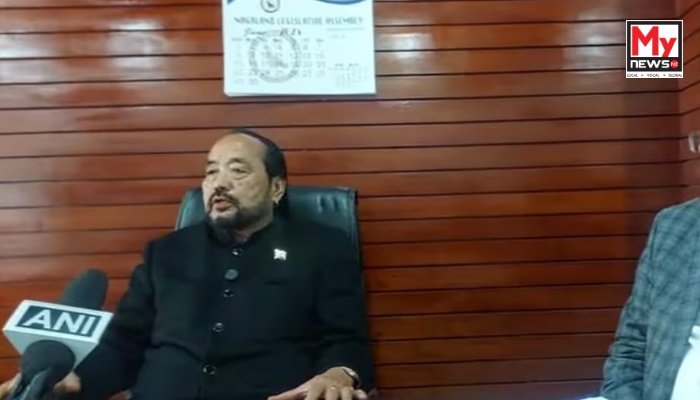Nagaland Government and Five Major Tribes Reach Truce on Reservation Quota Impasse
KOHIMA: In a significant breakthrough, Nagaland’s Deputy Chief Minister, Yanthungo Patton, has successfully brokered a temporary understanding with representatives from five prominent tribal groups – Angami, Ao, Lotha, Rengma, and Sumi – concerning the contentious state backwards quota reservation. The tribes, who had been vocal about their grievances, had sought either a complete overhaul of the existing reservation system or the allocation of the remaining quota to their communities. This development has led to the tribes agreeing to suspend their agitation, offering a much-needed period of calm.
Patton, addressing the press after the discussions, articulated the core of the agreement. “In today’s discussion with the five tribes (Angami, Ao, Lotha, Rengma and Sumi), we deliberated on the reservation quota. They want us to scrap the backwards quota reservation or give the remaining quota to the five tribes… We have reached an understanding. They have given us two weeks to form a commission during which we’ll have a Cabinet meeting… Until then, we are grateful to the five tribal bodies for agreeing to keep their agitation in abeyance,” he stated, underlining the interim resolution and the spirit of cooperation.
The Nagaland government has now committed to establishing a commission within a fortnight. This body will be tasked with a comprehensive review of the state’s backwards reservation policy, with the aim of addressing the fundamental demands put forth by the five tribal communities. Its recommendations will then be presented to the Cabinet for a decisive policy decision. This proactive step underscores the state’s intent to engage tribal leadership in a meaningful dialogue and work towards a sustainable solution.
Er Tesinlo Semy, the Convenor of the 5 Tribes CoRRP (Committee on Review of Reservation Policy), confirmed the positive outcome, stating, “The Nagaland government has decided to set up a commission in 15 days (to review the state’s Backwards Reservation policy). The commission will examine the core demands of the five tribes and submit its recommendations for the cabinet to decide. Till the formation of the commission, we have agreed to keep our agitation in abeyance.” This mutual agreement to pause protests signals a collaborative path forward.
The upcoming two-week period, encompassing the formation of the commission and the subsequent Cabinet meeting, is deemed crucial for addressing the longstanding concerns of the tribal groups. These concerted actions are anticipated to pave the way for policy formulations that resonate with the needs of both the tribal communities and the larger populace of Nagaland. The government’s responsive approach highlights a commitment to resolving historical issues through open dialogue and collaborative governance. The active involvement of the 5 Tribes CoRRP in these critical discussions further accentuates the significance of inclusive policymaking that genuinely considers diverse community perspectives. As the deadline looms, both governmental and tribal leaders harbour optimism for a constructive resolution that will foster social cohesion and equitable development across the state.
Read More: ‘Biplab Deb Applauds Tripura’s Flood Response, Highlights Infrastructure Gains

